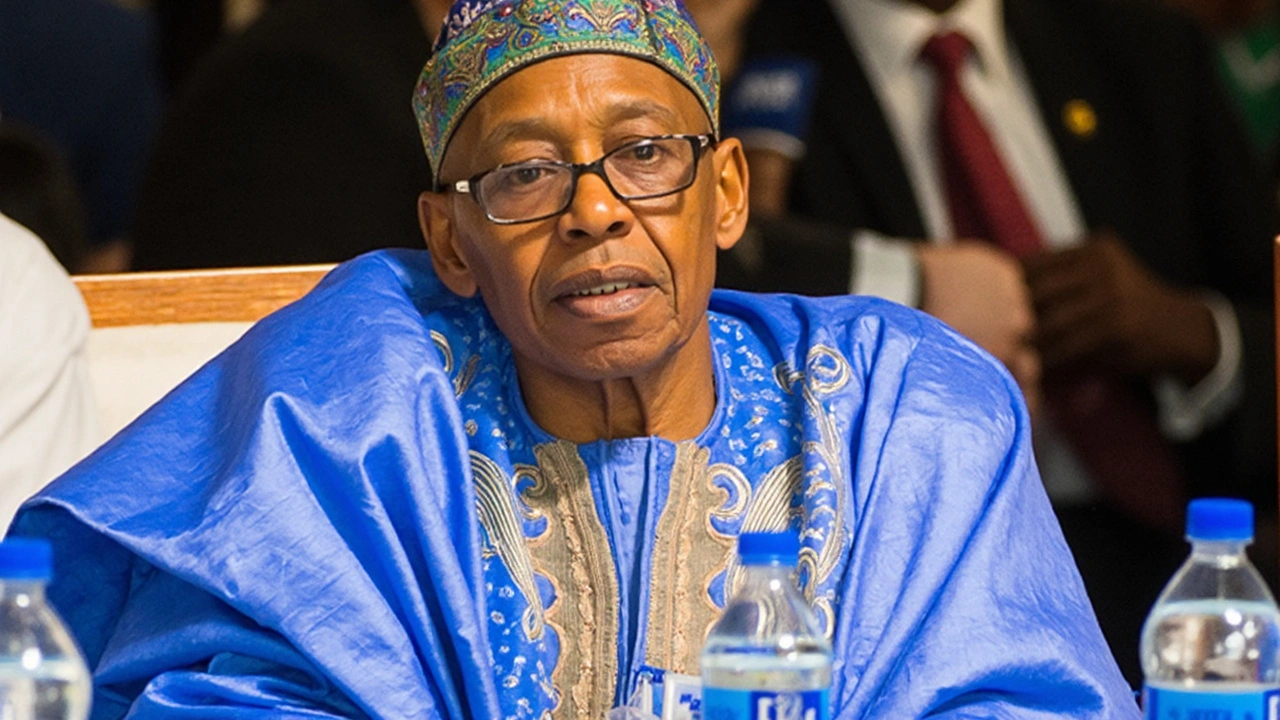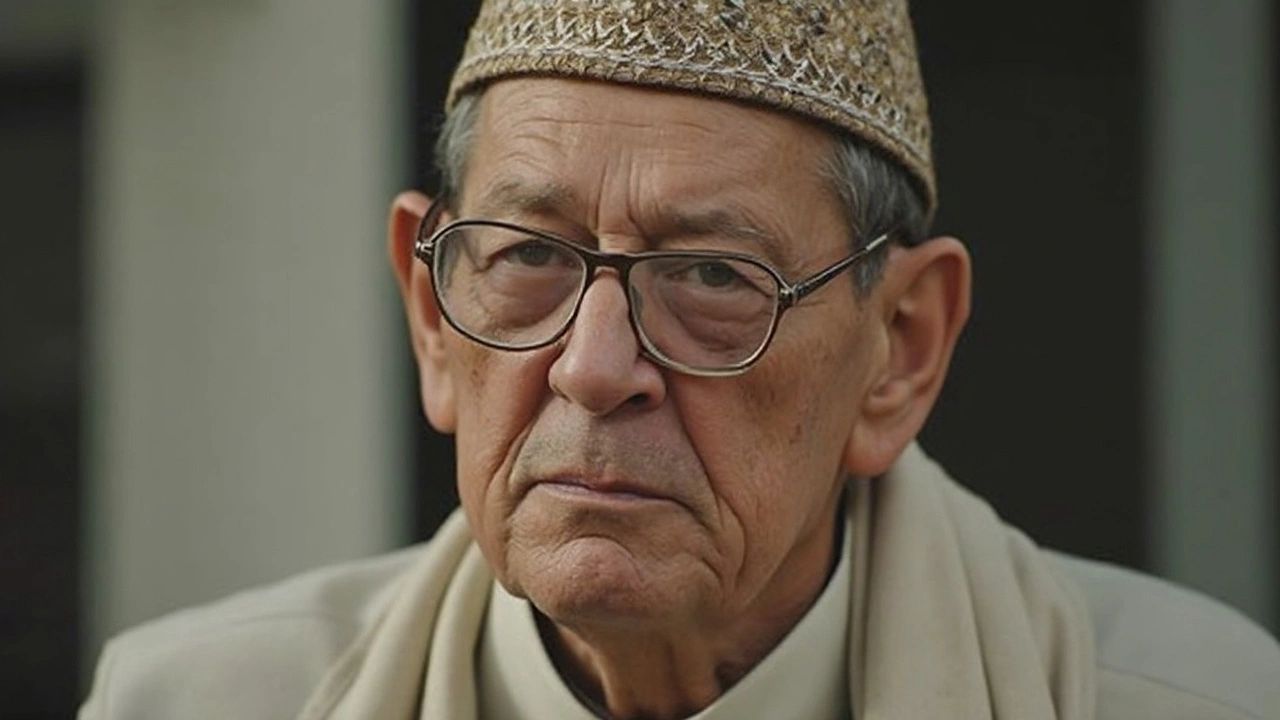The recent resurgence in the call for justice surrounding the notorious annulment of Nigeria's June 12, 1993 presidential election has cast a spotlight on former military head of state, Ibrahim Babangida. Once lauded for his pivotal role in Nigerian politics, Babangida now faces the intensity of advocacy led by the Committee for the Defence of Human Rights (CDHR), a group fervently requesting that he answer for what they deem a coup d'état and a crime against humanity.
The Annulment Controversy
The June 12 election, which was considered one of the fairest and most peaceful in Nigeria's history, saw Moshood Abiola emerge as the clear winner with a substantial mandate. However, the election was abruptly annulled, leaving 14 million Nigerian voters feeling disenfranchised and sparking civil unrest across the nation. This annulment marked a pivotal moment in Nigeria's political landscape, leading to widespread human rights abuses and setting the stage for authoritarian regimes that followed.
Debo Adeniran, the President of CDHR, underscored the gravity of this event in Nigerian history. He highlighted the role former military head Ibrahim Babangida played in fracturing the democratic hopes of a nation through the annulment, a story which Babangida himself admitted to orchestrating in his memoir, A Journey in Service. Adeniran pointed out that Babangida's account in the memoir further exemplifies his perceived impunity, painting his actions as calculated attempts to maintain power at the expense of democratic rights.

Calls for Justice and Accountability
The CDHR's demand extends beyond mere rhetoric. They are urging the current Nigerian President, Bola Tinubu, to take definitive action against Babangida and others who benefitted from the annulment, such as the late Ernest Shonekan and Sani Abacha. Notably, during Babangida's regime, incidents of suppression were rampant, drawing heavy critiques over the targeted assassination of high-profile individuals such as journalist Dele Giwa, and the execution of Mamman Vatsa, a fellow military officer, on charges of coup plotting.
Activists and the families of victims of these dark days in Nigeria's history have voiced their criticisms, seeking redress and justice. They argue that addressing Babangida's actions is not solely a matter of historical accountability but essential for a country's commitment to democratic principles and the protection of human rights. They see this as an opportunity for President Tinubu to align his leadership with justice and reconciliation by dismantling any vestiges of past tyranny.
The ongoing dialogue champions the ideal that addressing these historical grievances isn't just about punishment but also about healing a nation and setting a firm precedent that democracy and human rights are not ideals to be relinquished lightly.


Abby Culbertson
February 27, 2025 AT 17:34This is so messed up.
Awolumate Muhammed Abayomi
March 1, 2025 AT 13:46Yo fam, the vibes around Babangida’s old moves are legit intense. People cant stop talkin about justice tryna catch up. It feels like the whole country is on fire for some real accountability. Let’s hope the gov steps up, no more delays.
Josh Tate
March 3, 2025 AT 09:59Man, the whole June 12 thing still hits deep. It’s like a scar that never healed, you know? Folks need closure, and this push for prosecution might finally give some peace.
John Smith
March 5, 2025 AT 06:11Honestly, the whole saga reads like a textbook on power abuse. Babangida literally penned his own confession, and yet the legal wheels keep grinding slowly. The CDHR isn’t just shouting-they’re laying out a roadmap for real justice. If Tinubu actually moves, it could reset Nigeria’s democratic compass. Otherwise we’re stuck replaying the same old script.
Alex Soete
March 7, 2025 AT 02:23Look, we’ve seen history repeat itself when the powerful aren’t held accountable. The energy behind this call feels like a fresh breath of hope for many who grew up hearing about the 1993 tragedy. Let’s keep the momentum, keep the conversation alive, and push for tangible steps-not just empty words.
Cara McKinzie
March 8, 2025 AT 22:35Wow, another drama‑filled “justice” campaign. As if the past will just vanish with a press conference. 🙄 Nothing new, just the same old chant without any real bite.
Joseph Conlon
March 10, 2025 AT 18:47Look, I get the hype but let’s not forget that every political wave comes with its own set of trade‑offs. Yeah, Babangida pulled a massive stunt, yet the legal system isn’t a magic wand. We need concrete evidence, fair trials, and a transparent process-nothing else will satisfy anyone, especially the skeptics.
Mohit Singh
March 12, 2025 AT 14:59Seriously, who even cares anymore?
Damian Liszkiewicz
March 14, 2025 AT 11:11It’s striking how the collective memory of June 12 still fuels today’s discourse. The call for prosecution isn’t just about a single person; it’s a broader demand for institutional accountability. When you look at it through a philosophical lens, it’s about restoring moral order in a society that’s been long‑denied its voice. 🌍🕊️ I hope this momentum translates into concrete reforms.
Angela Arribas
March 16, 2025 AT 07:23While I agree the sentiment is noble, the phrasing matters. "Prosecution" should be spelled correctly, and the timeline must be clear. Anything less looks sloppy-especially for an issue this serious. :)
Sienna Ficken
March 18, 2025 AT 03:35Alright, let’s unpack this whole mess like a seasoned analyst at a comedy club. First off, the June 12 annulment is the political equivalent of dropping a bag of popcorn on a quiet movie set-everyone sees it, nobody expected it, and the aftermath is a splatter of accusations that still stain the screen today. The CDHR’s push isn’t just a nostalgic stroll down memory lane; it’s a full‑blown legal marathon that wants to sprint past bureaucratic roadblocks. Imagine Babangida sitting at a retro‑style desk, penning his own confession-talk about a dramatic plot twist that would make any thriller writer jealous. Yet, the real kicker is the juxtaposition of his memoir’s candid admission with the nation’s collective amnesia, as if they’re trying to forget a bad haircut while the scar is still visible. The stakes? Not just about one man’s legacy, but about cementing a precedent that says “no one is above the law”-a concept as refreshing as finding Wi‑Fi in a remote village. Tinubu’s role in this drama could be likened to a director’s cut; he can either edit out the uncomfortable scenes or let them run their full glory. And let’s not overlook the other players-Ernest Shonekan, Sani Abacha-who are like background actors stealing the limelight when the script calls for a showdown. The whole affair is a masterclass in how history refuses to stay buried when the public’s outcry turns into a chorus louder than a stadium concert. If we truly want healing, the justice system must move faster than a snail on a treadmill; otherwise, we’re just feeding the same old grievances. So here’s the take: keep the pressure on, demand transparent trials, and maybe, just maybe, the nation will finally get to watch the final episode without a cliffhanger.
Zac Death
March 19, 2025 AT 23:48Wow, that was a wild ride through the history books, and I’m all for turning that energy into something constructive. The key is balancing that passionate push for accountability with a clear, step‑by‑step legal roadmap-no vague promises, just solid actions. It’s like building a bridge: you need a strong foundation (evidence), reliable pillars (fair trials), and a smooth deck (transparent processes) for everyone to cross safely. If Tinubu and the judiciary can keep that collaborative vibe alive, we might actually see some real progress, and that would be a win for all of us who care about Nigeria’s democratic future. Let’s stay optimistic but grounded, and keep the conversation going-because change doesn’t happen overnight, but it does happen when we keep showing up.